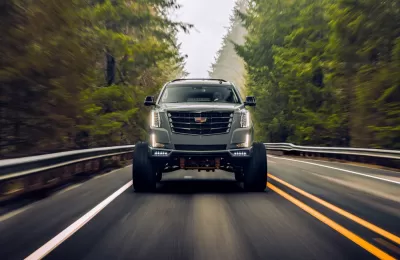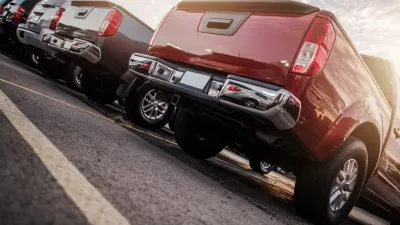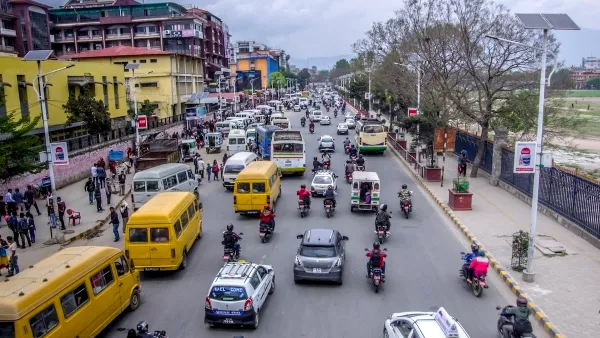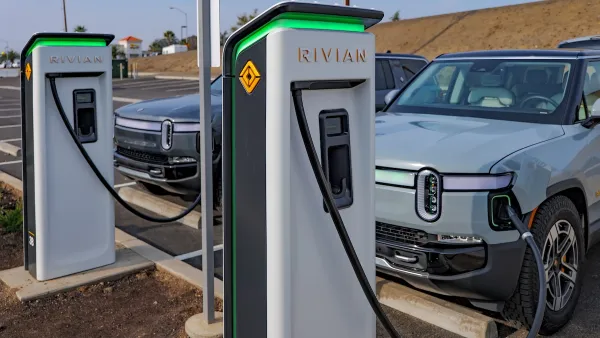Even with the growth of electric vehicles, experts say the trend toward larger, heavier vehicles is inherently incompatible with environmental goals.

Based on the amount of emissions they produced last year, the world’s SUVs are, collectively, the sixth largest emitter of carbon dioxide. Writing in The New Yorker, Elizabeth Kolbert points out that the average SUV releases 20 percent more carbon per mile driven than a medium-sized car.
“The move toward bigger and heavier vehicles, it seems pretty obvious, is incompatible with the goal of reducing global emissions.” So “Why is it that the world is moving toward heavier cars at a time when it should be doing precisely the reverse?”
One major reason, Kolbert writes, is the high price of SUVs, which are up to 51 percent more expensive than smaller cars, despite similar production costs. U.S. carmakers can also evade fuel efficiency standards by classifying vehicles as trucks. “Unfortunately, the electrical-vehicle tax credits approved last year as part of the Inflation Reduction Act give S.U.V.s similarly favorable treatment.”
In addition to carbon emissions, bigger vehicles also create more particulate pollution from tires and pose a higher risk to pedestrians. Experts suggest charging higher registration rates for heavier vehicles—a policy being considered in California—could discourage the proliferation of massive trucks and SUVs.
As Kolbert points out, replacing gas-powered cars with electric ones will only be a stopgap that reduces carbon emissions but creates other serious impacts on the environment and public safety. “Better still would be to ditch cars altogether.”
FULL STORY: Why S.U.V.s Are Still a Huge Environmental Problem

Planetizen Federal Action Tracker
A weekly monitor of how Trump’s orders and actions are impacting planners and planning in America.

Restaurant Patios Were a Pandemic Win — Why Were They so Hard to Keep?
Social distancing requirements and changes in travel patterns prompted cities to pilot new uses for street and sidewalk space. Then it got complicated.

Maui's Vacation Rental Debate Turns Ugly
Verbal attacks, misinformation campaigns and fistfights plague a high-stakes debate to convert thousands of vacation rentals into long-term housing.

In California Battle of Housing vs. Environment, Housing Just Won
A new state law significantly limits the power of CEQA, an environmental review law that served as a powerful tool for blocking new development.

Boulder Eliminates Parking Minimums Citywide
Officials estimate the cost of building a single underground parking space at up to $100,000.

Orange County, Florida Adopts Largest US “Sprawl Repair” Code
The ‘Orange Code’ seeks to rectify decades of sprawl-inducing, car-oriented development.
Urban Design for Planners 1: Software Tools
This six-course series explores essential urban design concepts using open source software and equips planners with the tools they need to participate fully in the urban design process.
Planning for Universal Design
Learn the tools for implementing Universal Design in planning regulations.
Heyer Gruel & Associates PA
JM Goldson LLC
Custer County Colorado
City of Camden Redevelopment Agency
City of Astoria
Transportation Research & Education Center (TREC) at Portland State University
Camden Redevelopment Agency
City of Claremont
Municipality of Princeton (NJ)





























